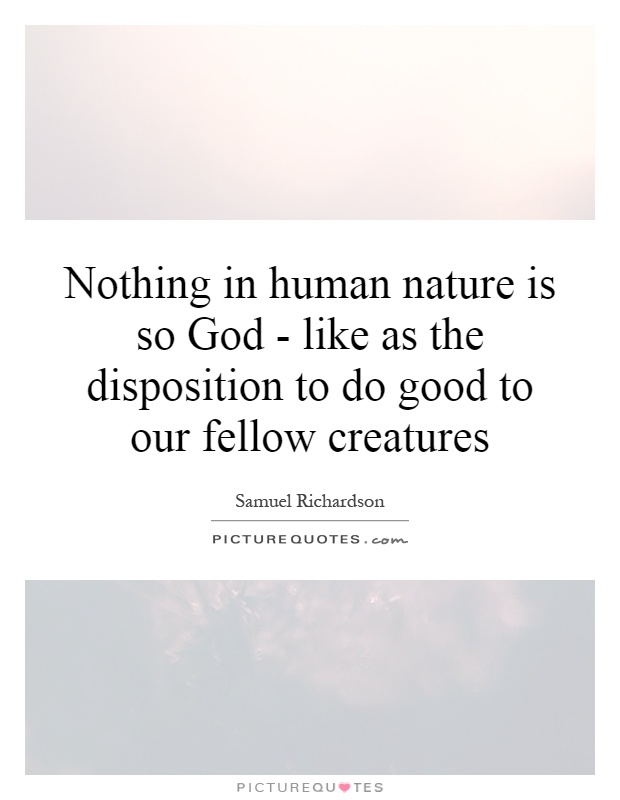Nothing in human nature is so God - like as the disposition to do good to our fellow creatures

Nothing in human nature is so God - like as the disposition to do good to our fellow creatures
Samuel Richardson, an English writer and printer, is best known for his epistolary novels, particularly his masterpiece "Pamela" and "Clarissa." Richardson's works often explore themes of morality, virtue, and human nature, making him a fitting lens through which to examine the idea that "Nothing in human nature is so God-like as the disposition to do good to our fellow creatures."In Richardson's novels, characters are often faced with moral dilemmas and must navigate complex social situations that test their virtue and integrity. The protagonist of "Pamela," for example, is a young servant girl who must resist the advances of her employer in order to maintain her virtue and integrity. Through her actions, Pamela demonstrates a deep sense of compassion and empathy for others, even in the face of adversity.
Similarly, in "Clarissa," the titular character is a young woman who must navigate the oppressive social norms of her time in order to assert her independence and autonomy. Despite the challenges she faces, Clarissa remains steadfast in her commitment to doing good and helping others, even at great personal cost.
Richardson's characters exemplify the idea that true goodness lies in the willingness to do good to others, even when it is difficult or inconvenient. This disposition, he suggests, is a reflection of the divine within us, as it requires us to transcend our own selfish desires and act in the best interests of others.
In Richardson's world, acts of kindness and compassion are not only commendable but essential to the moral fabric of society. Through his characters, he demonstrates the transformative power of goodness and the profound impact that even small acts of kindness can have on the lives of others.












 Friendship Quotes
Friendship Quotes Love Quotes
Love Quotes Life Quotes
Life Quotes Funny Quotes
Funny Quotes Motivational Quotes
Motivational Quotes Inspirational Quotes
Inspirational Quotes